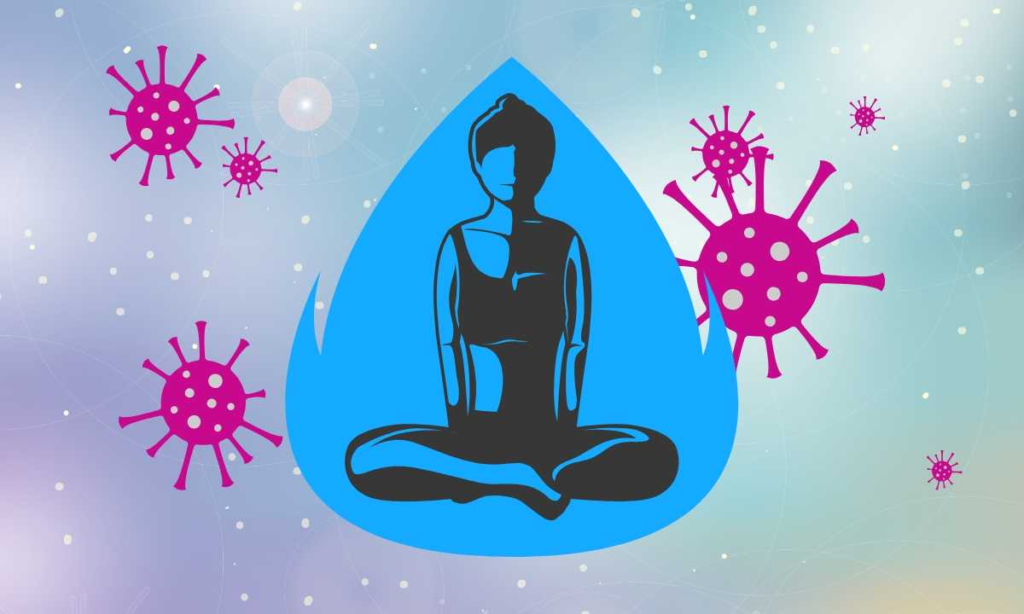
Meditation has a reputation for inducing calmness and relaxation. The following article expands on its vast benefits and role in our lives.
Meditation is an art that has been around for thousands of years. It involves training your mind to focus and redirect your thoughts to be in the present. Some people in the Southeast Asia region use meditation for religious purposes, while others, like transcendental meditation, are non-religious.
Meditation is widely known as a way of reducing stress but offers other benefits. These benefits include enhanced mood, improved cognitive skills, and increased self-awareness. Explained in this article are some of these meditation benefits.
Meditation Helps with Stress Management

Meditation helps with managing stress by relaxing the body and mind. Stressful thoughts can become overwhelming, hence making meditation an option to distract your mind from them. The stress hormone cortisol plays a role in stress development. It releases inflammatory chemicals known as cytokines.
Cytokines disrupt sleep, promote depression and anxiety, and increase brain fog. By meditating, you decrease the likelihood of developing such complications. Meditation may improve symptoms of stress-related conditions like PTSD, irritable bowel syndrome, and fibromyalgia. Eating optimal foods for the brain also plays a role in reducing anxiety.
Meditation Boosts Immune System

Whenever stress occurs in the body, inflammation is a common side effect. The more inflammation in the body, the more it exposes your immune system. By meditating, you reduce stress hence also reducing inflammation and protecting your immune system.
Less inflammation leads to decreased risk of non-communicable diseases like chronic pain, diabetes, heart disease, and many more.
Memory Improvement

Meditation is a crucial element in maintaining a good memory. Memory loss occurs over time hence meditation helps prevent its decline. Meditation produces more grey matter in the brain, which protects the hippocampus.
The hippocampus is a part of the brain that handles memory, movement, and emotional control. Regular meditation maintains the hippocampus’ functionality, improving memory and overall brain operation.
Meditation Helps with Substance Abuse Management

People going through withdrawals from substance abuse experience a lot of discomforts. These effects may include anxiety, irritability, and lack of focus. When such individuals abstain from the substances, these symptoms may become severe and lead to death.
Meditation helps curb the cravings for these substances. It increases calmness, makes the person more present, and reduces the stress of abstaining from substances. It is important in maintaining sobriety for such individuals due to its relaxing effects on the brain and body.
Lowers Blood Pressure

Hypertension, simply known as high blood pressure, is when a person’s blood levels are higher than usual. The condition is usually a result of unhealthy diets, a sedentary lifestyle, and a lack of sufficient nutrients in the body.
Meditation helps people with hypertension by decreasing blood pressure. The calming effects of meditation help relax the body, making it an effective and powerful way of managing hypertension. Meditation can impact high blood pressure and improve health when combined with a healthy diet and exercise.
The Takeaway
Meditation has been around for generations, making it an ancient way of healing. Its benefits include a relaxed mind, being more present, reducing anxiety and stress, improving memory, and managing substance abuse. Meditating increases the likelihood of enjoying a happy and healthy life with their loved ones.
FAQ
Can meditation be done anytime?
It can be done anywhere and anytime. It requires for a person to connect with their thoughts and body to find calmness.
How can I perform meditation?
To perform meditation, find a suitable area that induces calmness. Focus on your breathing for 10 minutes while not letting your mind wander. Repeat the practice often to get the benefits involved.
Can I perform meditation with others?
The more people you practice meditation with, the more likely you will experience the full benefits of the practice.
